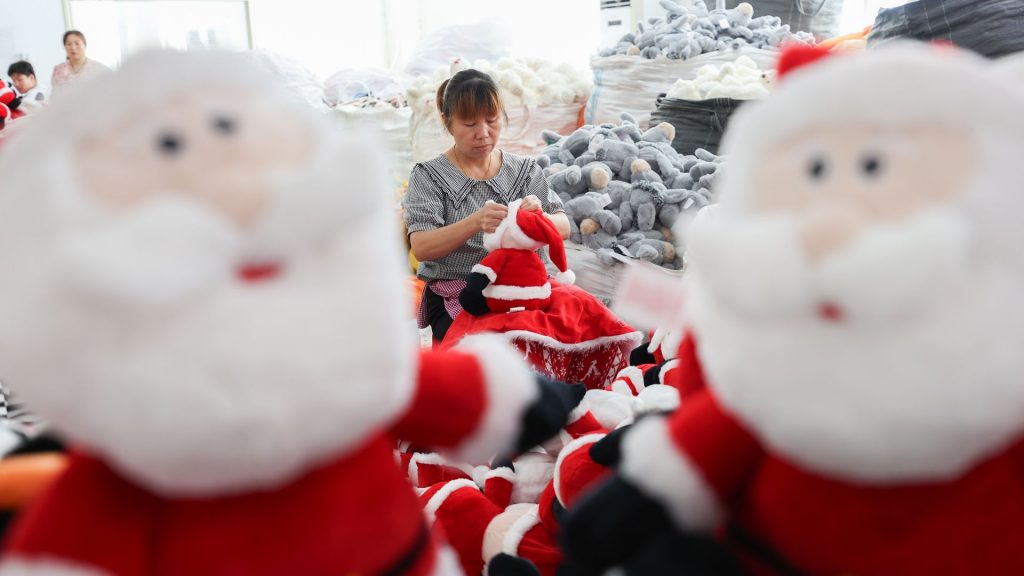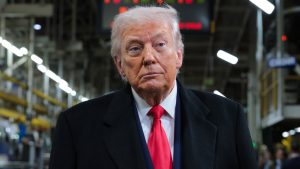Tariff trouble in toyland: Retailers feel the impact as they prepare for Christmas

It’s not exactly time for most Americans to prepare their gift list for Christmas, but for some U.S. retailers, President Donald Trump’s tariffs are already dimming the holiday spirit. China is a powerhouse for producing the majority of the toys and gadgets many put under the tree.
#KeepToysTariffFree
The 145% tariffs against China led The Toy Association to start the hashtag “KeepToysTariffFree” in hopes that the White House and congressional leaders will protect Americans’ wallets this holiday season. Typically, imports into the U.S. are the busiest at this time of the year, as retailers and businesses stock up for back-to-back holidays.
“We respectfully request that the Administration protect childhood learning and development, with ‘zero for zero’ tariffs on toys as history and precedent support,” Kathrin Belliveau, chief policy officer at The Toy Association, said.
In an interview with ABC News on Tuesday, April 29, Trump said China deserves the tariffs.
“At 145, they basically can’t do much business with the United States,” Trump said.
Uruguay General Agreement on Tariffs and Trade
The organization representing 850 toy manufacturers cites the Uruguay General Agreement on Tariffs and Trade (GATT). In 1994, then-President Bill Clinton collaborated with 123 nations to lower tariffs and trade obstacles by enacting an agreement aimed at fostering increased global commerce through the World Trade Organization. The agreement identified different items where tariffs would be eliminated or significantly reduced, including beer, distilled spirits, pharmaceuticals, paper and toys.
CEOs of big-box stores warn of price hikes, empty shelves
Unbiased. Straight Facts.TM
Cargo imports for apparel, textiles and umbrellas decreased more than 50% after Trump announced tariffs on “Liberation Day.”
Axios reported the CEOs of three major companies –– Walmart, Home Depot and Target –– told Trump that his new tariff policy will disrupt supply chains, cause empty shelves and ultimately lead to price hikes for consumers. Top executives stated that by mid-May, roughly two weeks after their late April meeting, American consumers should expect significant changes in their retail shopping experiences. According to U.S. Trade & Tariff Data, in 2024, the U.S. imported around $439 billion in goods from China.
Toy makers say they could be out of business in months
The Toy Association surveyed over 400 member companies to assess the effects of tariffs. Fifty percent of them reported they will be out of business within weeks or months. The April survey indicates that tariffs disrupted the toy production supply chain, leading to shipment cancellations, loan defaults and increased bankruptcy risks for retailers.
On April 24, 11 businesses, including a toy maker, filed a lawsuit against President Trump, the United States and several federal agencies. The companies accuse the Trump administration of abusing its power under the International Emergency Economic Powers Act (IEEPA) and the separation of powers.
Court documents state, “While IEEPA authorizes the President to take a number of significant actions, the imposition of tariffs is not among them. Second, the national emergencies declared by the President do not constitute an ‘unusual and extraordinary threat’ as required by IEEPA, rendering any tariffs imposed pursuant to IEEPA unlawful.”





